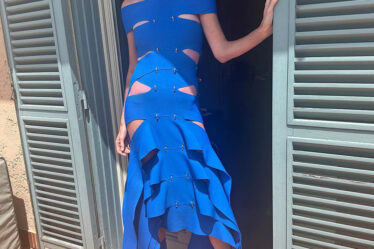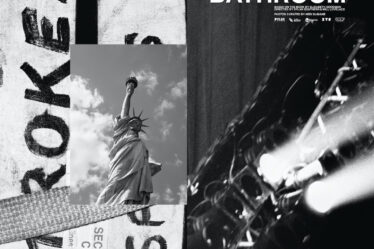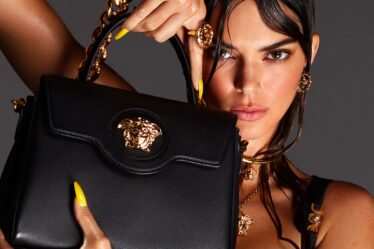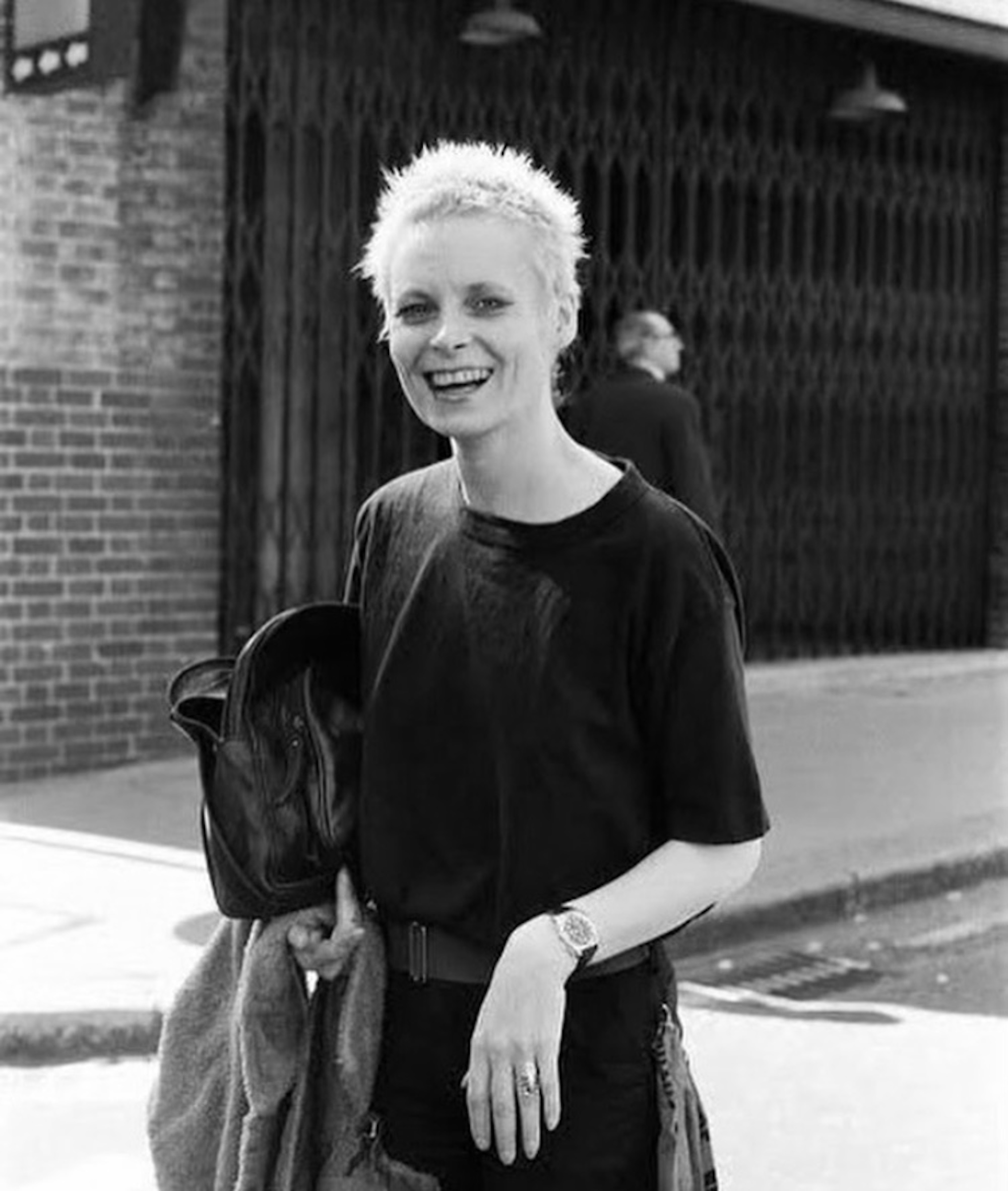
As the world reflects on the passing of the pioneering designer, Damian Foxe, Editor-in-Chief of Man About Town shares his memories of time spent with the icon and her immeasurable legacy.
IG: @stellamccartney

The irreverence and transformative legacy Dame Vivienne Westwood graced British and global fashion with has been honoured as the world reacts to her passing at the age of 81. From Naomi Campbell to Cara Delevigne, Zendaya and Bella Hadid – fans and industry heavyweights have heralded the ‘Queen of Punk’, who’s stood at the vanguard of British design since the 1970s.
Editor-in-Chief of Man About Town, Damian Foxe, not only spent time with Westwood on several occasions, he also wrote his Masters thesis on the designer and like many, has followed her career and idiosyncratic approaches closely for decades. “I was always pretty obsessed with her,” he shares.
Below he discusses his first interactions with the star, Westwood’s fascinating relationship with the British establishment, her unadulterated authenticity, and the future of the brand as her husband and creative partner Andreas Kronthaler takes the helm.
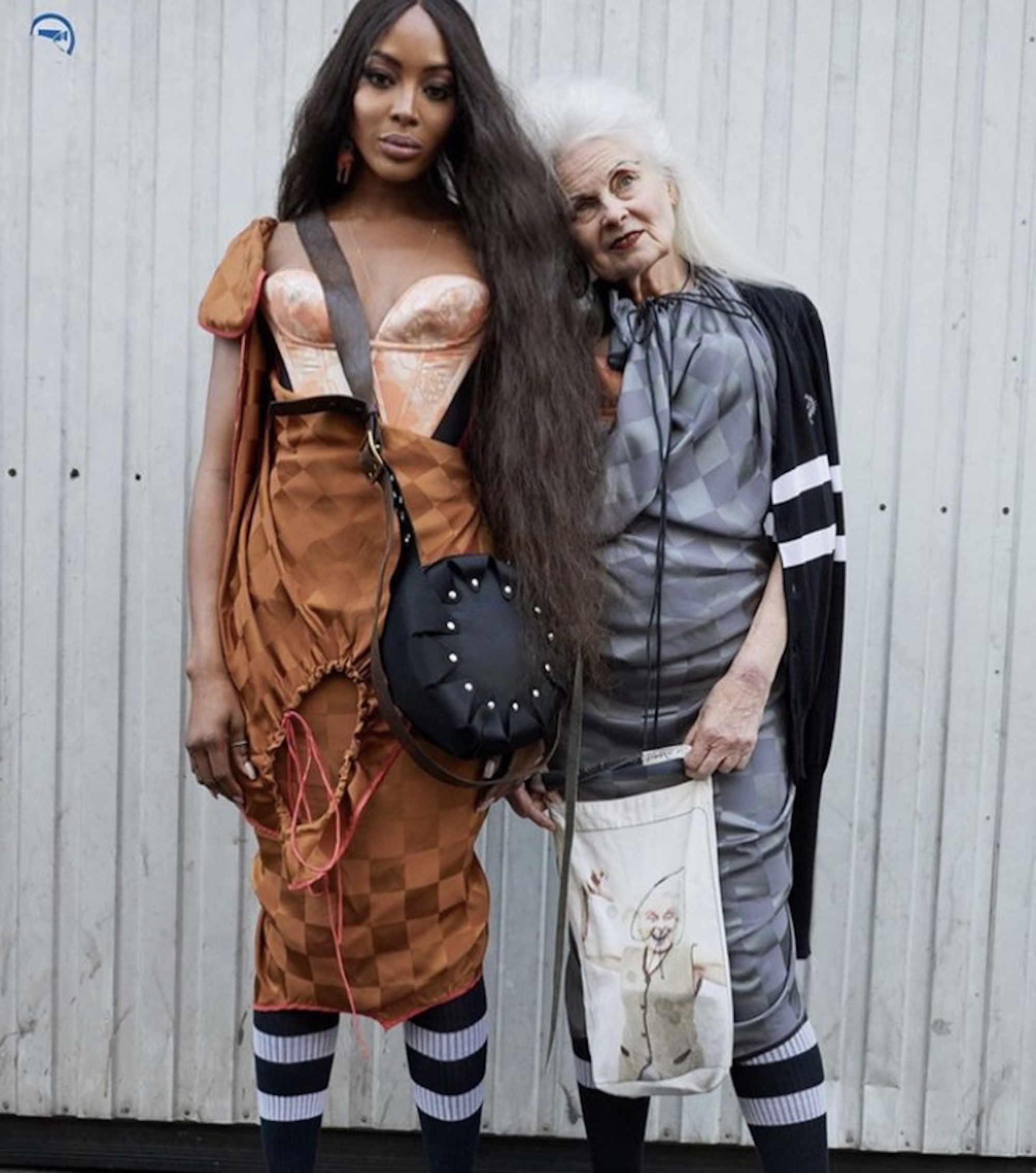
IG: @Naomi

You came to meet Vivienne later in your life, but what was the first interaction that you remember having with her work as a fashion lover?
I just liked that it was like nothing I’d ever seen before. She was one of the revolutionaries, when it came to clothing. It didn’t resemble anything else. You know, everything else seemed to be a development of something that went before. Whereas what she did with Malcolm McLaren just seemed to come out of nowhere. It was like this kind of mashup of influences from street style to couture, mixed with tribal and ethnic influences. And you know, there were the Japanese designers who were quite revolutionary and punky in a kind of deconstructed way. But she was the first one who did it in a kind of politicised way where what she did was embedded in a political agenda from the get-go which I think changed and developed over the over the decades. Her agenda changed. I think in a way the early stuff was just angry. A bit angry at the establishment, at the imbalances in the world economically and politically, the power in the hands of the few and the wealthy and the privileged and so she was all about that statement of taking back power, and empowering the people. And I think as as those circumstances changed, the power of the privileged kind of shrank and the world became a little bit more democratic, her agendas changed to very specific things, you know, like the environment or those kinds of causes that were so close to her heart.
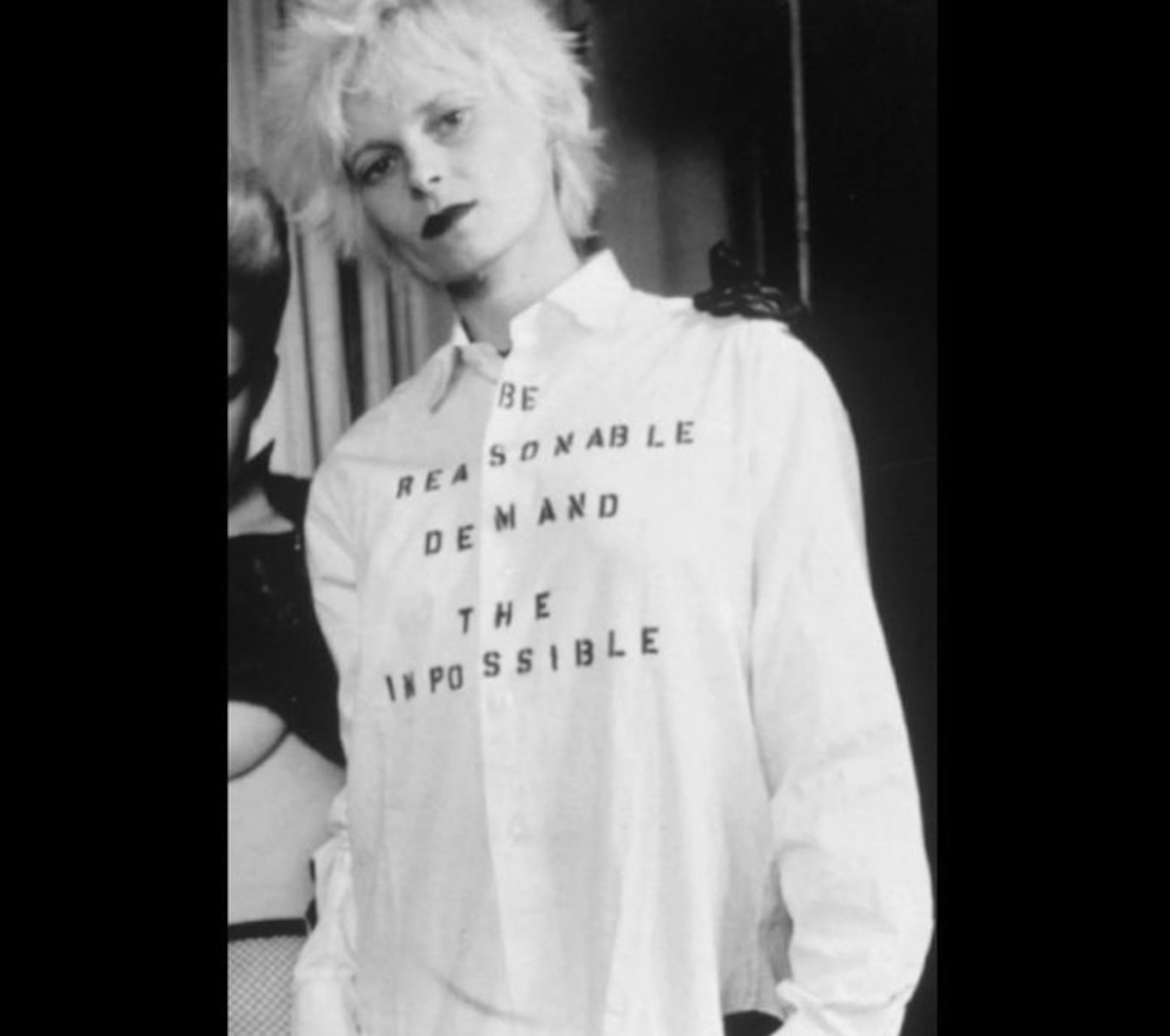
IG: @themarcjacobs

She had what some considered to be a fascinating relationship with the establishment. She was known for rejecting it and being at the forefront of punk, but was also at the heart of British design for decades and honoured several times by the Queen. What were your perceptions of that relationship over time?
The thing is, she really never was drawn into the establishment, even when she visited the queen, she didn’t wear any knickers. She twirled and she didn’t have any knickers on. I think what she realised was that you couldn’t change things from a distance. So to be able to be powerful and influential, you have to get into bed with the enemy to some extent, or with those people that you disagree with. Shouting at somebody across a barricade is never going to change anything, you actually have to sit down at a table and discuss. And I think that’s maybe what she realised, that a closer relationship might prove to be a more influential tool. I mean, it makes her sound big and large and angry all the time. Actually, when you met her, she was the sweetest person, or she was extremely sweet to me. I gather she wasn’t sweet to everyone. The first time I met her, she made me tea and I remember it was in a little china cup. It was like tea and funny little iced biscuits that you get from the corner shop on a little flowery plate. And she always looked like she looks in pictures, she never dressed down. So she was always rocking around in a giant platform or hobble skirt or some crazy outfit at all times. That wasn’t for press or for show that is who she was. But within that she was nice, very sweet and as she got older, she was like an old lady, she was a little hard of hearing and you had to shout to make yourself heard. And I’m not sure if that was hearing loss, or the fact that she didn’t like listening that much. She was very embedded in her viewpoint and so she was very certain of it but so are most people who in the end implement change. But she was very sweet.
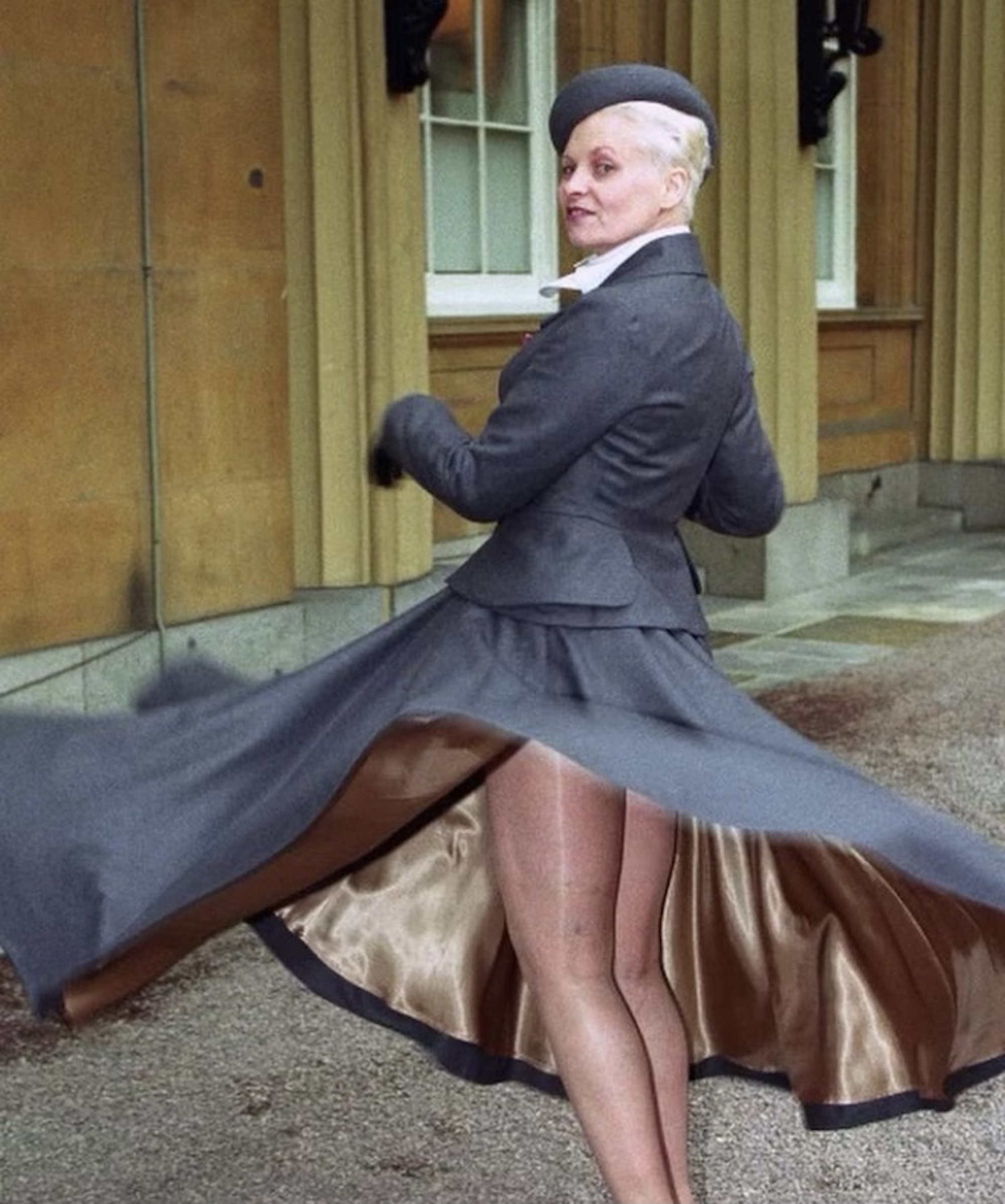
IG: @stellamccartney

They used to invite me to the Westwood Christmas party, and a few times I sat next to Vivienne for a few hours chatting, and it was funny, she was not that sociable so she would hide out a bit and I’m quite socially-phobic so I would hide as well. And so I would find myself hiding under the stairs with her. She was quite deaf and with the noise of the party I don’t think she could hear so well and I’d been chatting to her for like an hour and she turned to me – this was the funniest thing she ever said to me – she goes: ‘I’m really enjoying our chat. I can’t hear a word you’re saying, but it is lovely to talk to you.’ I was like, ‘Oh my God, this poor woman doesn’t even know what to say. It seemed like a conversation, but it had a slightly broken quality to it and she possibly couldn’t hear me, but anyway, she seemed to really enjoy it. And she kind of patted me on the hand, she held my hand and said, ‘it’s so nice to speak to you.’
But also, Vivienne agreed to do the key-note speech at [an event I was working at] and nobody would believe she was going to turn out, everybody was really nervous as to whether she would show. It was in Kenwood House in Hampstead on the heath. So it was like these big marquees in the middle of a field basically. Ans everybody was like, ‘Are you sure she’s going to come? What are we going to do if she doesn’t show?’ and I’m like, ‘She’ll show, she said she’s gonna come,’ and people were quite nervous. And then she rocked up, and that’s not even that long ago so she was in her 70s wearing like, giant platforms and hobbling with two people helping her across the ground. And it was kind of hilly and there were loads of big holes in the ground, and she walked across these rocky old fields in a full scale outfit, and then she was amazing. The whole thing was a big, proper, challenging political conversation. But she was amazing. She got a huge standing ovation and she was just like a powerhouse on the stage.
She was very commanding and really focussed, because sometimes if she didn’t want to listen, she wouldn’t listen. And if she found you boring, she would tell you that you’re boring her. She wasn’t a sweet little pushover, she never ever was. She always got her viewpoint across. There’s an interesting documentary on her and there’s a bit where she comes in and she and Andreas have to present to the sales teams from around the world of her own company. And she just goes and walks around the rail and she’s like ‘this is all shit, I don’t like any of this.’ And you know, she’s on camera, talking about her own brand and she’s refusing to speak to anybody because she just doesn’t like it. And that’s kind of who she was, she was so true to her own self and her own beliefs. She just owned her own story and there was no compromise. She would never compromise for the comfort of others, regardless of how it looked or how it sounded to other people.
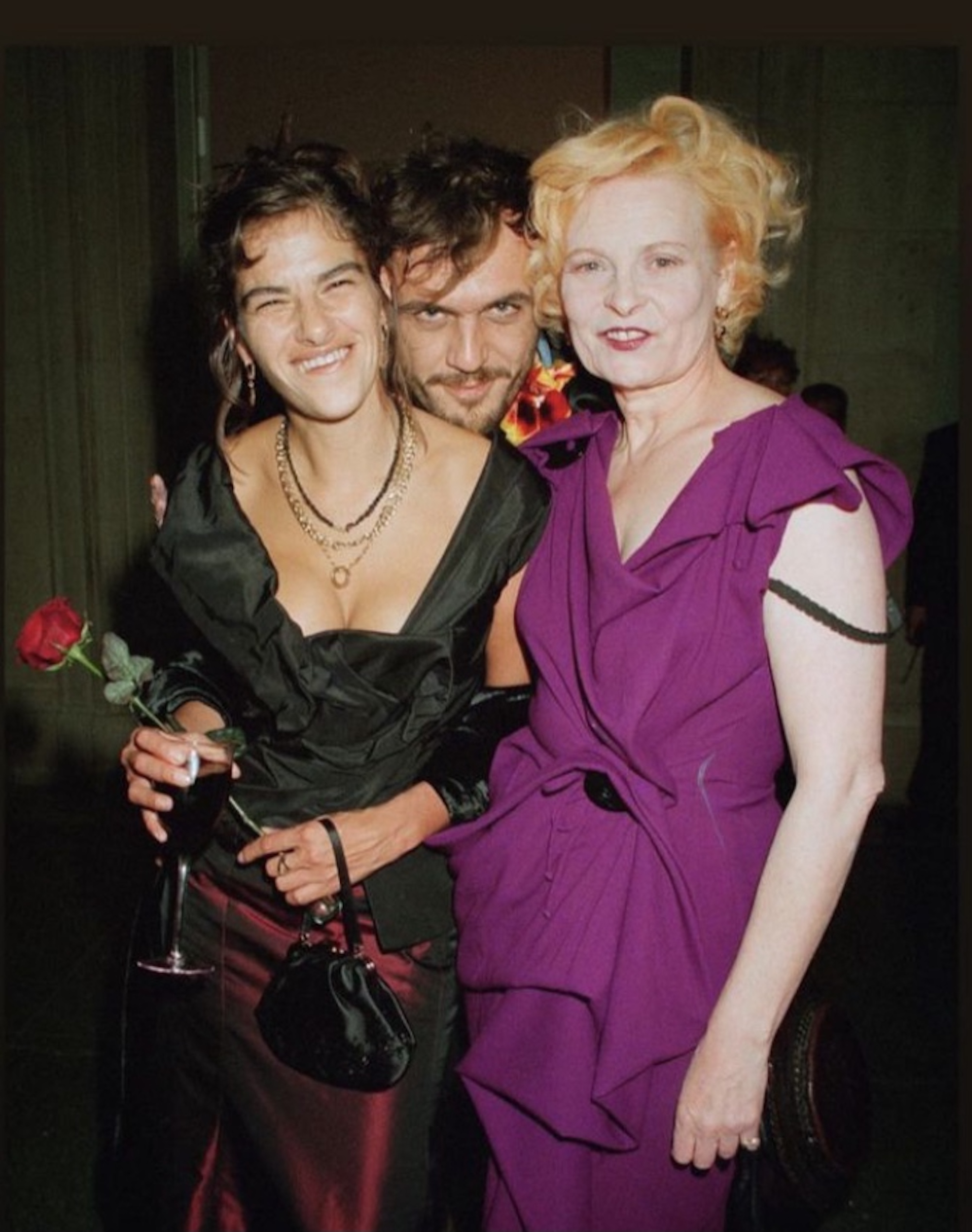
IG: @tracyeminstudio

She was just all-out, authentically herself!
Yes, absolutely. 100% herself. And the other interesting thing, I felt a great loyalty towards her for many reasons. Partly because she agreed to give me interviews when I’d just started my career and to bag an interview with her was a big deal and I did my thesis on her and it had gone really well. And so for many reasons, she was always on the pages [I was working on] at all times. But there were periods where she disappeared off everybody else’s pages. People felt she was irrelevant. It’s funny, because right now and leading up to her death has been a period of great relevance [for her], because what she believed has suddenly resonated with the public and also with what young people are really concerned about. The environmental stuff is so relevant and has brought her a whole new following, a much younger following. But, at certain points during the time that I’d known her and the 25/30 years that I followed her closely, there were periods where people felt like she was irrelevant, and it was regurgitating the same thing, and there were all these historical references and people felt like the clothes never changed or developed and she didn’t develop. But the truth was, when you look at it, she had a certain vision that she stuck by. And the great designers do that, like Yohji Yamamoto for example, never really changed his point of view. And there are moments where everybody is obsessed, and there are moments where people forget them.
And interestingly, at the last show in Paris, there was almost a riot outside. There were hundreds, hundreds and hundreds of young fans of hers dressed up head to toe in crazy Westwood, or Westwood-inspired [outfits] but like a kind of modern day take on punk, and, you know, that whole mashup of styles. And there was such a buzz. It was funny, because getting into the show, the PRs were slightly mortified and apologising, and I was like, ‘Are you joking? This is amazing.’ It reminded me of the days when I was going to Paris first. And there was just a buzz and a slight hysteria around her and the average age was like 20 or below, it was a young audience. So I think the relevance of the Westwood brand as we move forward, is going to stay very relevant because I think it’s captured the minds and the imaginations and the hearts of a very young market.
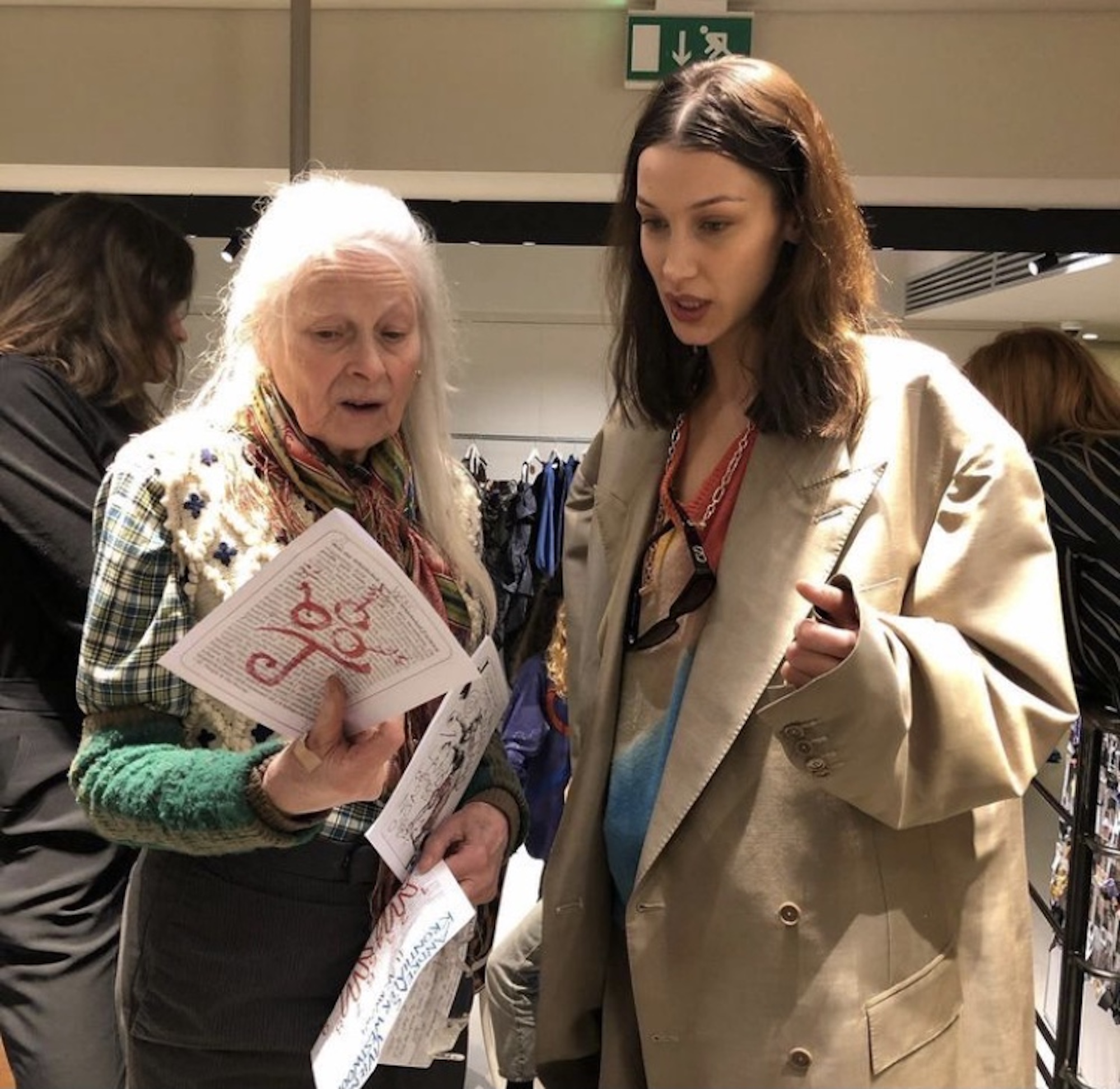
IG: @bellahadid

We’ve seen in a lot of the tributes following her death, people expressing sentiments relating to the eternal nature of her influence. Do you have an idea of what you think that might look like moving forward?
I think Andreas has a great connection to what’s important and amongst the younger generations, and always has and what’s interesting about him, he’s not paying lip service to these things, it seems to come from a very true and honest place. I think he lives and embodies them, and so he doesn’t have to tick boxes or pretend or try to stay relevant. You know the whole gender fluidity, the fluid kind of identity, the idea of just expressing your individuality as your essence in how you present yourself to the world, that all of those ingredients are there for anybody to express themselves in any individual way that they want. I think it’s the genuine respect for people and love of people and openness to people and experiences. And also, they’ve always reflected back what’s happening around them in that it’s always been a political brand. So as the world changes, the brand has always changed and developed. It’s like a mirror, and it reflects what’s happening. And I think that will continue to be true and I imagine that Andreas will be able to allow the brand to grow in how it mirrors society and what’s happening around it. I mean ultimately, Westwood’s great dream was just the survival of the species, the saving of the planet, giving a life to the next generation. That’s what she was always about. She took elements of history, but really, it was always a future-facing brand. It was always about what needs to happen for people to thrive and survive. And, it was always about the world, and what was better for everyone as a whole, as opposed to the greed of individuals. And I think with that as your core, you can’t go wrong, you’re always going to stay important and relevant.
It’s like an organism the Westwood thing, it’s like a good virus. It mutates based on what’s affecting it from the outside, in reaction, in relation to what’s going on around it. It grows and develops and becomes stronger and stronger. You know some things just don’t do well with change, they just kind of freeze and die but Westwood as a brand will thrive on the idea of social change and innovation.

